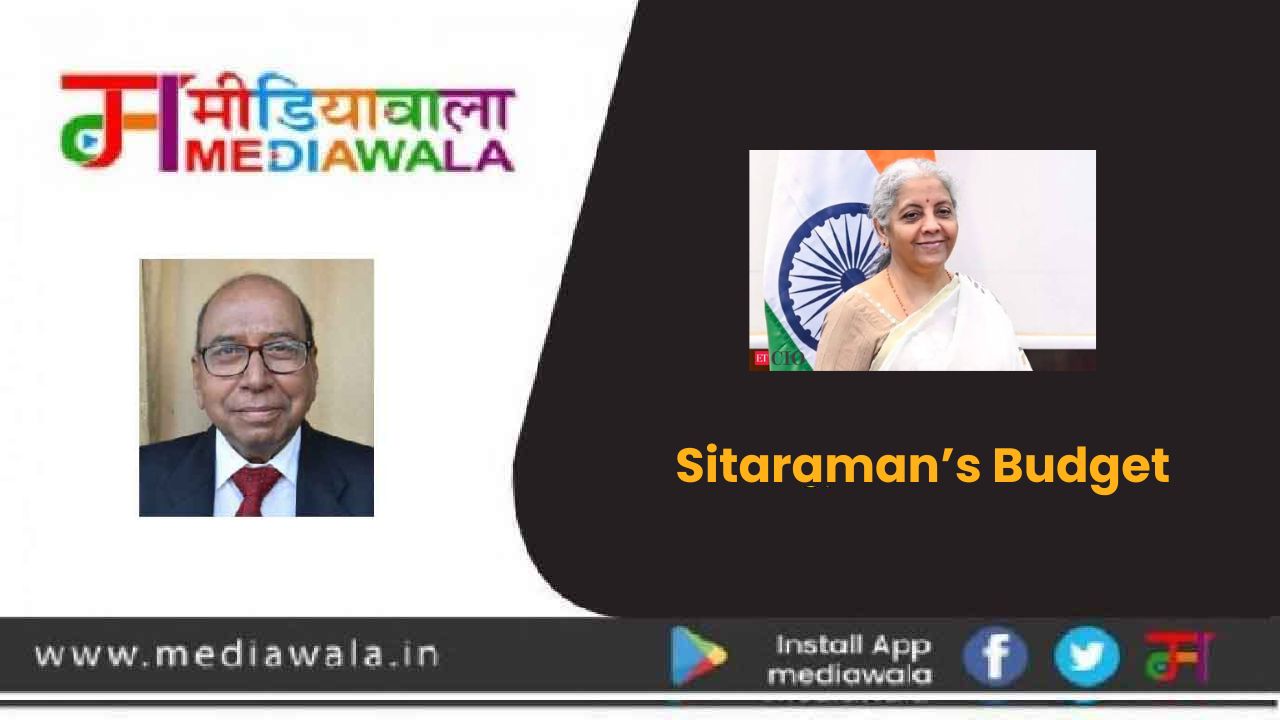
Sitaraman’s Budget
Nirmala Sitharaman will create history on coming Tuesday by presenting the seventh budget. However , this budget will come after the BJP’s failure to get full majority in elections. Political fallout of the election will reflect in the budget, bypassing the pure economic calculations. Populism may weaken the resolve for the long-term objectives. Special attention has to be given to appease the middle class. Sops to different classes may be provided in a tragic race among political parties.
Sitharaman and Modi government within their political constraints, may show grit for long-term objectives. She is at present fortunate to work with strong economy. All the macro indices are strong. GDP growth in 2023-24 has been phenomenal 8.2%. Sensex is running like a mad bull. The stock exchange (sensex), despite FII (foreign funds) declining from 24% to 16%, is booming with the investments of the common people. People are heavily investing in SIPs and mutual funds. The balance sheets of the banks and the corporates are healthier than ever. Current account deficit is well under control. Forex reserves are increasing. RBI has announced 2.11 lakh crore bonus to the government. CPI-based inflation has been easing gradually. Economy’s engines are firing.
As a citizen, I would wish that Sitharaman and NDA remain committed to reforms. After comparatively easy reforms of the last three decades, India needs to venture in difficult reforms in the areas of land, labour, and farms. This requires honest efforts and consensus among the centre and the states on one hand, and on the other, among different political parties. Hectic back parleys are the need of the nation.
India faces a big economic and social crisis of unemployment. Lack of jobs has subdued the consumption and demand. While rural consumption depends on weather, the urban consumption is affected by high interest rates. The finance minister cannot provide jobs in the budget, but she may create more employment opportunities. Emphasis on job creation and bridging the skills gap should be a high priority. Opportunities should be created in labour intensive manufacturing, such as textiles, gems and jewellery and food processing.
In the last few years, the government driven expenditure in infrastructure has carried the economy. In spite of providing capital rich private sector with production linked incentives (PLI) schemes and easy corporate tax, yet the private investment is not coming. Much more efforts are required for improving the ease of doing business, and clarity on tariff regime for private investments. This is the prerequisite for creating jobs And not the gimmick of filling the vacancies in the government
The finance minister should pursue the normal prudence of any budget. For tax-reforms she should simplify tax laws, reduce rates and increase compliance. She must allocate more resources for quality education and healthcare. She should provide incentives for farmers, improve irrigation and crop insurance. For MSME, she should reduce the compliance burden for small businesses. Disinvestment of unprofitable public sector should be continued. Fiscal deficit should be contained below 4.5%. For real welfare of the poor and lower middle class, she must enhance allocations for poverty alleviation, pension schemes, and social security. In my humble opinion such a balanced budget will stimulate economic growth and general well-being, and also make India globally competitive.







